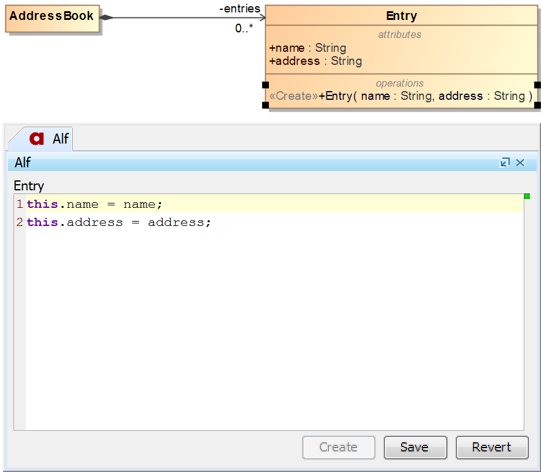By default, when an instance of class is created using an Alf expression of the form new ClassName(), each attribute of the new instance has its default value, if this is specified for it, and is null otherwise. However, sometimes it is desirable to perform additional initialization behavior on a newly created instance, beyond just the default initialization. You can do this by defining a constructor operation.
A constructor operation is created like any other operation, but it must then have the standard Create stereotype applied. A class may have any number of constructors. Conventionally, a constructor often has the same name as the class (which, in Alf, is considered the default), but, in UML, this is not required – constructors can have any name. An Alf instance creation expression identifies a specific constructor to use, with a slightly simplified syntax for the case in which the constructor name is the same as the class name.
In the Address Book model, it will be useful for the Entry class to have a constructor operation, so that values can be provided for the name and address attributes of a new instance when it is created.
To create an Entry constructor
- Click on the little Create Element button at the top right of the Entry symbol on the Class diagram, and select Operation.
- Type Entry as the name of the Operation, and, inside the parentheses, type the parameter list name: String, address: String, then press Return.
- Right click on the new Operation, and select Stereotype.
- Check the Create Stereotype, and click on Apply.
- With the Entry Operation still selected, open the Alf editor window (select Windows > Alf), if it isn't already open, and press Create.
In the Alf editor, type the statements shown in the following figure.

- When the text is correct, press Save.
Next: Creating AddressBook operations